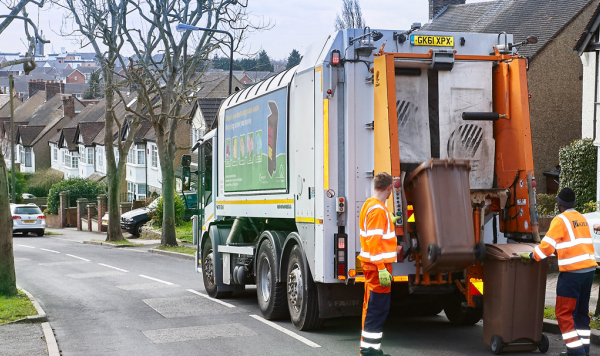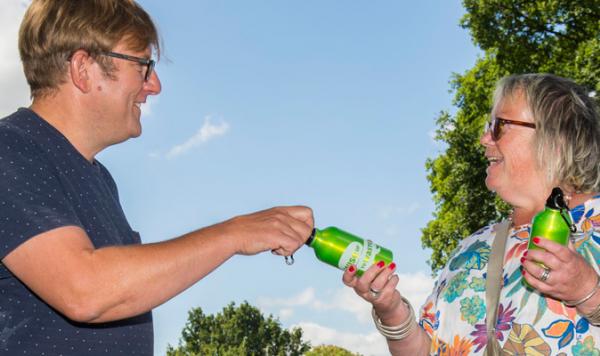Request
NLWA.
I am a concerned resident of LB Enfield who has decided to make this deputation to the NLWA to request the board consider alternatives to the costly and out dated planned works on the new incinerator and energy from waste plant at Edmonton. The voice of residents has not been heard and information has not been forthcoming regarding this plan, until now, such that this decision may be going ahead today with councillors across the 7 councils making the crucial move at this meeting to go ahead with, or delay, the planned new waste to energy incinerator, without any meaningful public consultation at all, in fact, an utter sham from NLWA and their PR buddies.
However, I am hoping to see go ahead as soon as possible, the superb new recycling centre, the exciting Ecopark Recycling Centre. Whose aim is to drastically improve the pitifully low recycling rates that are in reality required to feed the current, and presumably, the new energy from waste incinerator. The double bind here, is that increased recycling reduces residual waste for the incinerator, while increased necessary incinerator feed, of course, reduces recycling. Which is why recycling is less than 30% across NLWA currently. Finally admitted after long prevarication and bluster, and actually quite appalling. Maximum recycling is a requirement of councils, incineration however dressed up is not. It is admitted by the NLWA and councils that they still have ‘work to do’ in ‘redoubling their efforts’, to get their residents to achieve their recycling targets. Covid19 apparently (quote) ‘has also demonstrated through the huge increases in residual waste tonnages and contamination of recycling collected, how much work we still have to do to get our residents to do the right thing and reduce, reuse and recycle their waste properly and at the levels we all want to see.’ We? The residents to do the right thing? Not the supermarkets, who do recycle, and should do much more. Not, the NLWA councils, who do some recycling and must do much much more, by engaging with and investing £1.2 billion not in a new incinerator, but in expanding the existing and new recycling facilities in the Lea Valley, to increase capacity and meet zero waste targets.
However, achieving recycling targets by reducing residual waste does not feed the beast, in this macabre and bizarre game of bluff and double bluff. The recycling centre contradicts the incinerator, as the incinerator contradicts the recycling centre, and through this all trust is lost in public bodies that depend on out dated technology, spurious PR, and especially the kind of public private partnership that we have seen fail the public so many times before, and is marked here, unfortunately by obvious Labour Party positioning and clubbiness, without regard for residents or voters.
The NLWA say that pausing the energy from waste incineration project would be irresponsible ‘risking up to 700,000 tonnes of non-recyclable waste being sent to landfill in the future.’ Really? Even appearing to blame residents for contaminating their own recycling, is not good politics. Blaming calls for a pause and reconsideration, including proper public consultation, blaming these concerned residents for ‘possibly’ causing 700,000 Tonnes of landfill, is risible and does not take concerns and residents views seriously. What is irresponsible is suggesting that the best thing to do with this contaminated residual material is not to facilitate residents and businesses in sort and recycle with all the new technology that is available and ready to be scaled up. Good quality recycling and composting schemes are defined as operating practical sustainable recycling processes. These are already operating in the Lea Valley and 7 boroughs, but in too small a capacity, through lack of will and investment. During lockdown I have engaged with some excellent webinars and websites, that have shown to me, that the solution ideally suitable to our boroughs, is recycling reducing reusing and renewable energy, and ‘collaborative working’. (Letsrecycle.com Tomra recycling marketing Capital Recycling and SUEZ who 'recycle' and 'recover' for Enfield and across North London and Essex, and declare the benefits of 'collaborative working'.)
Maximum recycling must be facilitated by local councils, as their duty of care, and in law, by our borough councillors and officers, who now hold the climate crisis responsibility for their residents and boroughs. The decision today to pause and review, or, continue with a new, but now, in view of climate emergency, out of date technology, is critical. Recycling and energy from waste are incompatible, I would say mutually exclusive. So that is the decision today, one, or the other: maximum recycling, minimal necessary incineration. I urge you again, before it is too late, to consider the plausible and practical alternatives: Recycle reuse renew; and get that state of the art Ecopark built, so we can all visit, and then we can do the right thing, without having been got, for £1.2 billion, so far... ‐ Thank You.
Malcolm Stow, Enfield North.
Response
Dear Mr Stow,
I am writing to you regarding your deputation to the North London Waste Authority (NLWA) meeting on Thursday 25 June 2020. This was in relation to the North London Heat and Power Project (NLHPP). I would like to thank you for joining the meeting and setting out the issues you wanted to draw to Members’ attention.
Following a thorough review of the proposed project, including the points raised in the deputations, I am letting you know that Members unanimously approved the start of procurement for the new Energy Recovery Facility (ERF).
As promised in the meeting, we are responding in writing to each deputation. I have outlined the key points you raised and provided a response for each below, to advise you of Members’ understanding of these issues in making their decision.
In your deputation you stated that the NLWA should concentrate on increased recycling, rather than the NLHPP. We agree that there should be a focus on increased recycling. NLWA does more than any London waste authority to help our residents increase their recycling rates. We accept the widest range of items for recycling and our waste prevention activities are one of the most significant in the UK. In fact, the cost to Councils and subsequently the taxpayer is lower for recycling than it is for residual waste, so the incentive to maximise recycling has financial benefits, as well as environmental. At the NLWA we recognise this, and that’s why as part of the NLHPP we are investing £100m in building new recycling facilities to help boost recycling rates to 50%. This includes a Resource Recovery Facility with capacity to manage up to 135,000 tonnes of wood, plastic and metal every year. We are building a new public reuse and recycling centre for the benefit of local residents. The NLHPP is fully consistent with higher recycling rates. It supports the circular economy and the NLWA's award-winning programme of activity to reduce waste and increase recycling. The new facility will not undermine the NLWA's efforts to increase recycling. In the UK and across Europe, the most successful recyclers use energy recovery to treat non-recyclable waste and reduce landfill. In continental Europe this includes countries like Austria, Belgium and Germany. The same trend can be seen in the UK, with some of the local authorities with the best recycling rates using energy from waste - including South Oxfordshire and Stratford-Upon-Avon. NLWA has publicly called for a range of national measures to increase recycling – including a deposit return scheme, greater consistency in recycling collections and reform of the UK packaging producer responsibility. We need urgent and rapid action from Government to drive the fundamental changes that are needed to support higher recycling rates in north London. In your deputation you stated that more money should be spent on recycling facilities, rather than the ERF. As part of the NLHPP, we are investing in flagship recycling facilities at the Edmonton EcoPark, including a new state of the art Resource Recovery Facility to extract additional wood, plastics and metal for recycling that will help drive up north London’s recycling rates to 50%. We are also building a new hub, called EcoPark House, for local communities to learn more about the circular economy, and we are proud to be adding to our network of public Reuse and Recycling Centres. The reality is that even if recycling rates increase significantly in the future, there is still an urgent need to plan responsibly for the waste that can’t be recycled. In your deputation you suggested that residual waste should be sorted, to extract materials for recycling. Our focus, and the focus of the EU, UK Government and GLA, is to increase recycling at the kerbside – not to encourage people to put recyclable material in their general waste bin, for others to sort afterwards. Extracting waste from a black bin bag is a) ineffective, because much of the material is too contaminated to recycle b) expensive – it’s far better for residents to put the right waste in the right bin in the first place c) encourages unsustainable behaviour (why recycle when everything can be put in the black bin?) and d) poses health risks for workers who have to rummage through bin bags and pull out bits of waste by hand. This includes dirty nappies, spoiled foods, sharp materials and, potentially, hazardous waste. As we have mentioned previously, the NLHPP does incorporate facilities such as the Resource Recovery Facility and the public Reuse and Recycling Centre which are dedicated to ensure we can get the maximum amount of items possible for reuse and recycling.
In your deputation you claimed that there had been a lack of public consultation for the NLHPP. Extensive consultation was carried out prior to submitting the Development Consent Order (DCO) application, between November 2014 – June 2015 across all seven north London boroughs. This comprised a two-stage consultation process including 15 events and several meetings with community and statutory stakeholders. We also distributed newsletters to 28,779 properties within close proximity to the site and additional leaflets were left in community centres and libraries in all seven north London boroughs advertising the consultation events. NLWA hosted a website which included details of the consultation and advertised the events in the Enfield Independent, Haringey Independent and the Waltham Forest Guardian. Copies of the materials used in the consultation process can be found in the consultation report appendices here. The DCO was submitted to the Planning Inspectorate in October 2015 and following a public enquiry the Project was given consent by the Secretary of State in February 2017. During the public enquiry any person can assert their interest and their right to make representations about the application to the Inspectorate, whether this is to support or object the application. The DCO application would not have been accepted unless public consultation had been demonstrated and met requirements.
NLWA continues its wide-reaching engagement on the Project with stakeholders across Edmonton. This includes regular Community Liaison Group meetings, newsletters, Twitter and website updates and community roadshows.
If you have any further questions about the Project or require any clarifications, I would be happy to answer them or arrange a briefing at a suitable time.
Yours sincerely,
Cllr Clyde Loakes


